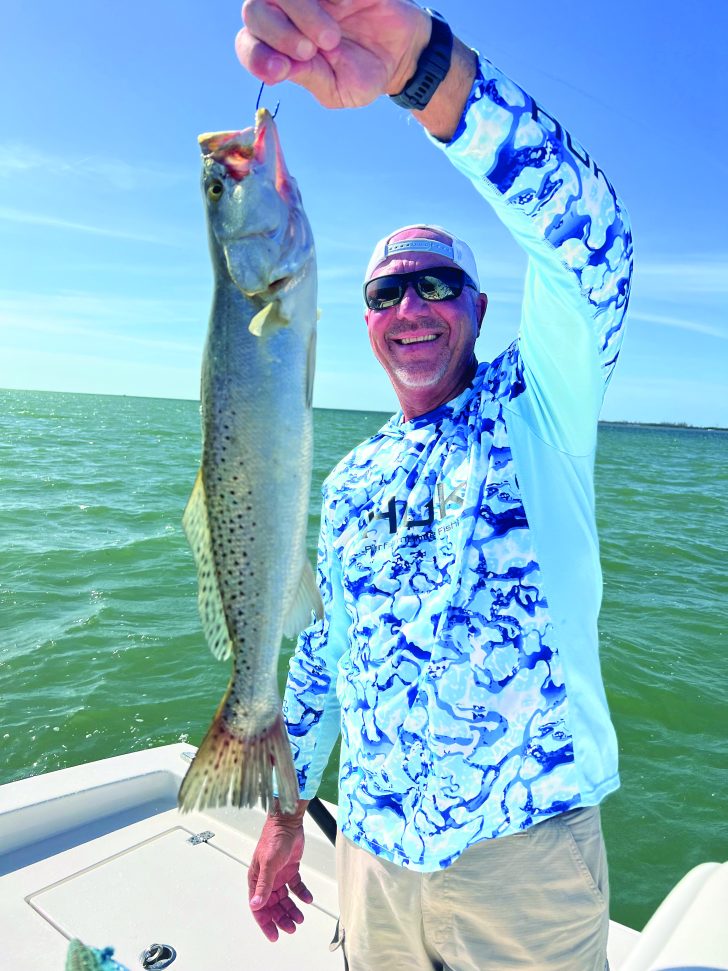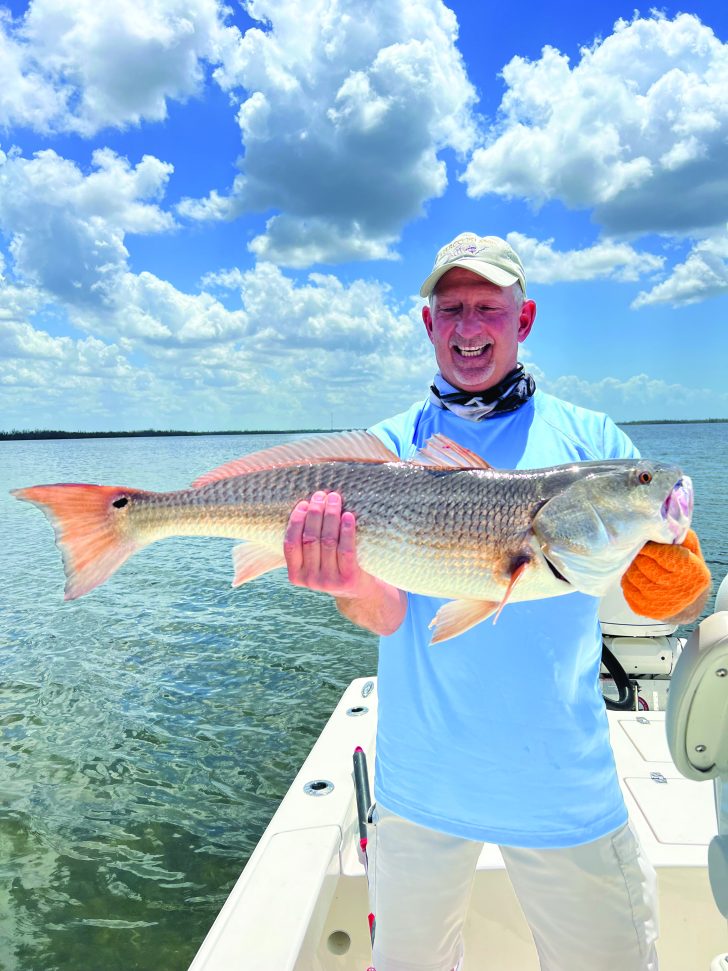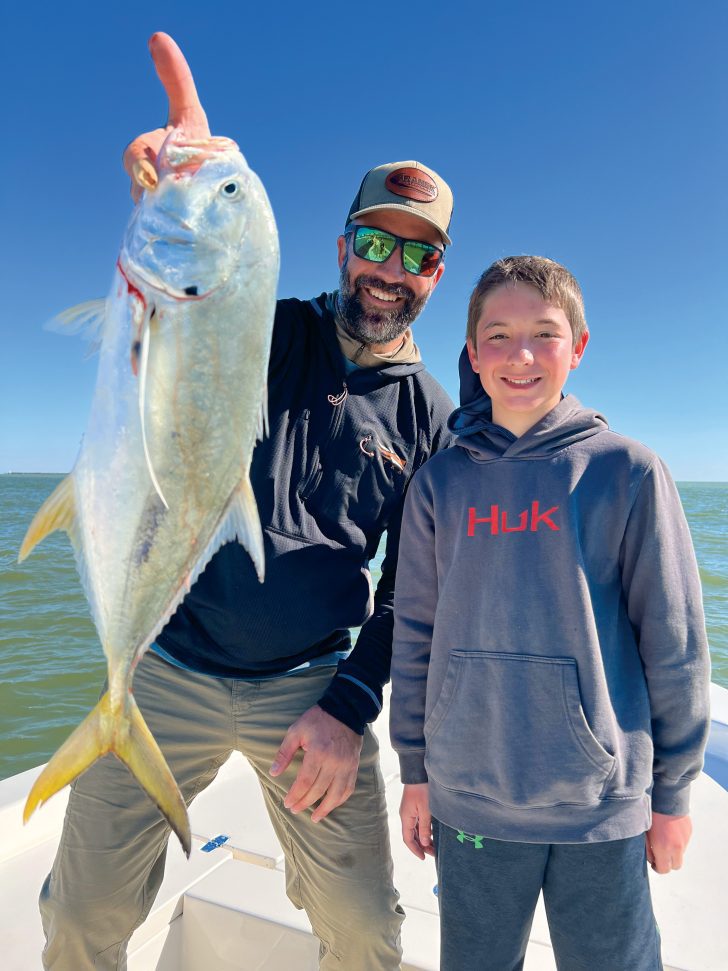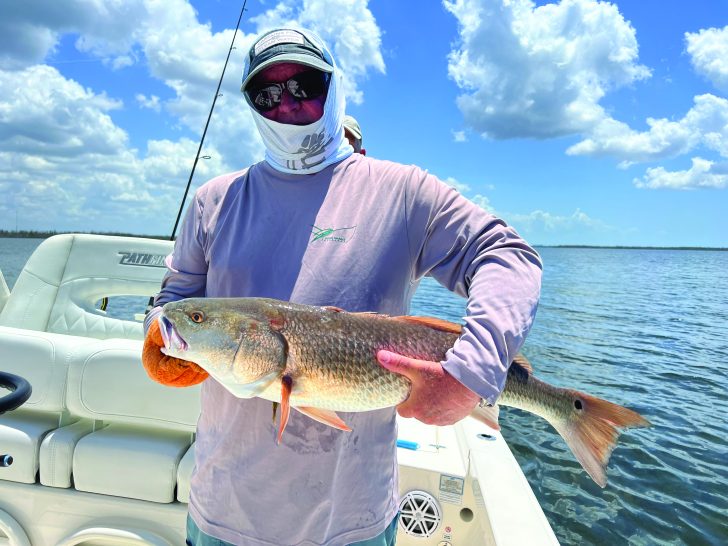by: Captain Terry Fisher
Firstly, thanks to all of my Marine Corps Bothers and Sisters as well as everyone else that served and are serving in our armed forces – Semper Fi!
It is that time of year, or the beginning, when good numbers of snook, and big redfish move into the back waters of Pine Island Sound and other secluded estuaries in Matlacha Pass (Oyster Creek, St. James Creek and Smoke House Bay), just to mention Turtle and Bull Bays on the northern end of Charlotte Harbor. In other words, with the higher summer tides, the redfish, snook, seatrouts and other species will be in most any area. They will be very aggressive eating shrimps, crabs and other baitfish which includes pilchards, threadfins and pinfish. Big snook will begin cruising the beaches as they spend the summer months spawning and enjoying the numerous baitfish that are available for feeding. They will be found on all of the beaches of Sanibel, Captiva, Cayo Costa and Boca Grande in good numbers.


Every day in July (weather permitting) should offer plenty of opportunity for an inshore ‘Fish of a Lifetime’, be it a snook, redfish, seatrout or tarpon. One of my most effective strategies for targeting and catching these wonderful ‘gamers’ is to;
1) Work the top half of the incoming or outgoing tides. I prefer to fish for snook or tarpon on and outgoing tide as opposed to the incoming. On the incoming tide, the fish will be closer to the beach, swimming parallel to the trench. However, on an outgoing tide, they will tend to move to the secondary ‘trench’ (further from the beach). Regardless, while fishing from shore, stay on the beach and out of the water when making a presentation. Big snook and tarpon spook easily!
2) In regard to redfish and big seatrout; I prefer to target them on an incoming tide in the back country areas around spoil islands. Where possible, fish the higher tides of the month during both the new and full moons. The tides in SW Florida move up and down every six hours, with few exceptions. Check out the tide movements for any particular day, month or location online at Saltwatertides.com. Super moons will normally reduce the fish bite.
3) Regardless of where one is fishing, do not stay in one spot too long. Move around to different locations to find the fish (they are not looking for you; you are looking for them). Work the points of islands with good current. Fish in and around the ‘dead’ wood structures in the back country areas. Fish your presentation very close to or actually under the mangroves, especially when the tides have ‘topped’ out as the fish are most likely to be taking refuge and protection deep into the ‘woods’. If pinfish and mangrove snappers are biting, move on to a different spot, as it is unlikely that the snook, redfish or seatrout are active at that location, at that time. Your job is to find them. Tenacity is the ‘key’ to finding and catching fish! Nothing good comes easy, so get to work and make it happen.
4) Fish the windward side of the islands (keys) and structure with threadfins, pilchards and large shrimps for best results. I use circle hooks in sizes from 1/0 to 3/0 depending on the size of the bait, not for the size of the fish I am hoping to catch. A 1/0 hook will catch and 40 plus inch fish, just as a 3/0 hook will. Match the hook to the size of the bait fish so the hook is not too big preventing the bait from a natural or slightly injured swim motion!
5) Another effective method for fishing the back country areas (around spoil islands with oyster bar clusters and lots of mangroves) is to fish shrimp, crabs on the seabed with a weighted jig head along those spots to hold the baits in place, or under a cork suspending the bait of choice just above the seabed. ‘Still’ fishing these baits are not a ‘sexy’ way to fish but can be the most effective.
6) Artificial baits presentations work as well, but not as effective as live baits. Go figure!
7) Do not hesitate to ‘re-visit’ previous spots at different times of the day during the incoming or outgoing tide cycles, as the fish may not have been there when you first made your presentations. If the area looks ‘fishy’, give it a couple of attempts before writing the location off. In this regard, over periods of time, fish will relocate given a number of factors including changes in water temperature, food supply, structures and fishing pressure. Other factors will include wind speed, wind direction and water clarity.
Finally, I am continually on the prowl to for new areas that hold fish. I always try at least one new spot each time I go out in an effort to locate fish. This is Captain Terry Fisher of Fish Face Charters LLC wishing everyone a happy and safe INDEPENDENCE DAY, JULY 4TH.


